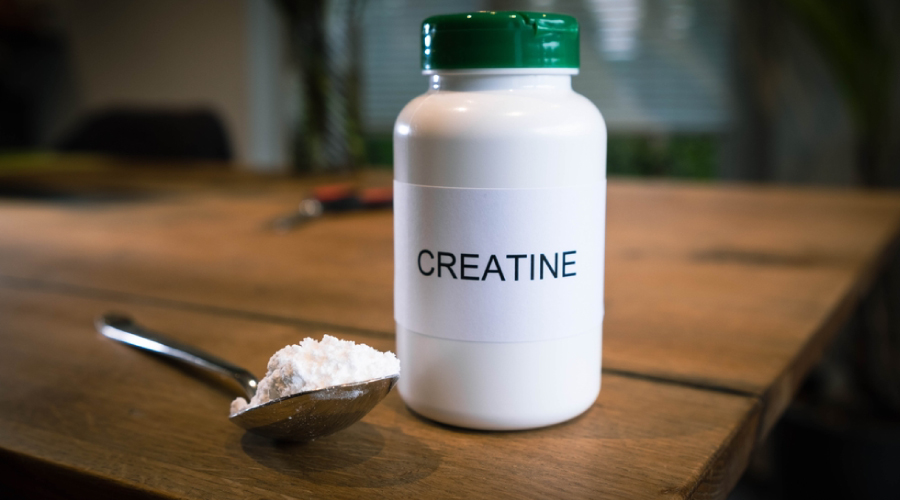

| Who Should Take Creatine Supplements? |
| Who Should Not Take Creatine Supplements? |
| Side Effects of Creatine Supplements |
| Benefits of Taking Creatine Supplements |
| Recommended Creatine Dosage |
| Conclusion |
One of the best supplements that help enhance your workout, creatine has the ability to increase muscle mass, strength, and performance. As one of the safest supplements to take, creatine benefits you in more ways than just enhancing your performance at the gym. Creatine also has a positive impact on bone mineral density, reduces oxidative stress, and may even boost memory. It has something to offer to everyone. Creatine is a natural source of energy in our bodies. Animal protein sources such as red meat and fish contain natural creatine but in very small amounts. Most of the creatine is stored in our bones and it helps us during any physical activity. Creatine supplements have made creatine intake easier and more efficient. However, these supplements should be complementary to your protein intake and should not be used as a replacement. Both creatine and protein have different things to offer to your body. Creatine gives strength during your workout while protein helps in muscle repairing after your workout.
Who Should Take Creatine Supplements?
Creatine is known for being one of the safest yet cheapest and most effective supplements that is available. It offers a quality of life for older people and enhances performance for gym-goers. Creatine is more than just a workout supplement. Although creatine is best recommended for athletes or people who are into intense workouts, to help them improve lean muscle mass and recover muscle quickly during workouts, its supplements can also be used by other adults because of its various other benefits.
Who Should Not Take Creatine Supplements?
Creatine is one of the most tested and safest supplements. However, people who suffer from allergic issues, kidney problems, and liver problems or are diabetic should not consume creatine supplements without consulting their doctor or dietician. Similarly, it is also advisable for pregnant women or women who are nursing to consult their doctors before taking these supplements.
Side Effects of Creatine Supplements
Creatine supplements are relatively safer, however, there are a few side effects of creatine that you should keep in mind:
- Weight Gain
- Anxiety
- Breathing difficulty
- Diarrhoea
- Fatigue
- Fever
- Headache
- Kidney problems
- Nausea and vomiting
- Rashes
- Stomach upset
- Taking caffeine along with your creatine supplement can increase the risk of side effects.
Benefits of Taking Creatine Supplements
Creatine is a natural supplement that helps athletes perform better. It is not only safe but it is also one of the world’s most popular and effective supplements for muscle and strength growth. Some of the creatine benefits may include:
- Creatine assists muscle cells in producing more energy
- Creatine improves performance during high-intensity exercise
- Creatine lowers oxidative stress
- Creatine enhances cognitive performance
- Creatine promotes muscular development
- Creatine may be beneficial and helpful for Parkinson’s disease
- Creatine may help in the reduction of fatigue and tiredness
Recommended Creatine Dosage
There are different forms of creatine that are available in the market, however creatine monohydrate stands out because of its effectiveness and affordability. Creatine monohydrate can be supplemented via 2 vital phases:
- Loading Phase – It is recommended to take a dosage of 3g of creatine per day for 30 days or 20 g of dosage for 4-7 days.
- Maintenance – To maintain the creatine level, it is recommended to take a dose of 2-3 g every day.
Conclusion
Creatine is one of the safest and cheapest supplement options to go for. It is an effective supplement that helps both workout performance as well as health. Taking creatine supplements every day can be beneficial for boosting brain function too.
